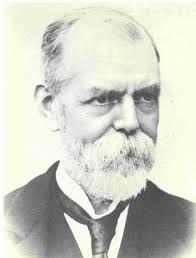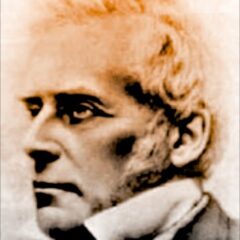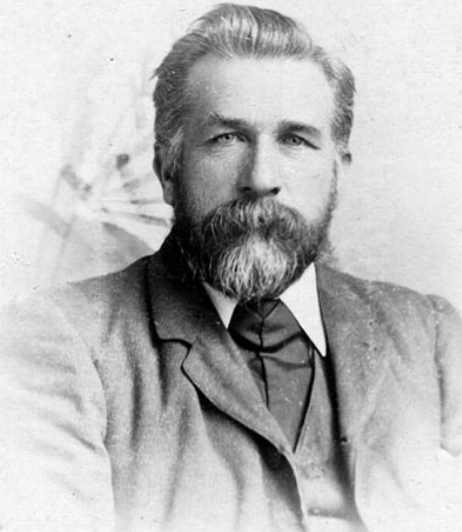A
It is worthy of note that the Apostle John, who was a father in a peculiarly blessed way, in addressing a word to each of the gradations in the family of God, namely, “fathers,” “young men” and “babes,” not only gives a present word to each, but also places a word on record. He says, “I write to you, fathers,” then he says, “I have written to you, fathers” (1 John 2: 13-27), suggesting to us that we need to be reminded of what has been written, as well as to take heed to the ministry of the moment.
It is a cause of deep thankfulness that in these last days of the Church’s history upon earth, God in His infinite goodness has been pleased to revive much truth that was lost to the saints during the middle ages. Some of the best of this ministry has been preserved for us in the printed page, and is still available to us. As in the days of Ezra and Nehemiah, the original features of the assembly, long lost, have been recovered in the power of the Holy Spirit through the instrumentality of faithful men raised up for the purpose and specially sustained in the midst of severe opposition. For more than a century the Lord’s voice has been heard in ministry of a most powerful character, separating many of His own from what is unsuitable to Him both in the world and in the religious sphere, and presenting Himself as the great Head of His body, the Assembly. Truth after truth has been recovered through the living activity of the Head in ministry, using vessels qualified by Himself for this precious service. Every truth thus recovered has been challenged and bitterly opposed, for the enemy always has his servants ready for this deadly opposition. But the Lord has stood by His beloved servants and supported them, so that one position after another has been won and consolidated.
In this process of recovery, it would appear that, speaking generally, the Lord has not been pleased to go over the same ground twice, but has given a gradual development of the truth. This principle is also in accord with the Lord’s activities in the early days of the Church’s history, as recorded for us in the Acts, where a gradual and orderly development of assembly features are seen, culminating in Ephesus in chapter 20, where the full light according to all the counsel of God is announced. The Lord pursues thus His gracious activities on the assumption that previous ministries have taken effect and builds upon that. Thus, in present ministry we get the Lord’s present mind for His own, making known that which is peculiarly suited to the present movements of the testimony. Never for one moment weakening what He has previously brought to light, but rather strengthening it and adding to it.
Now if the character of previous ministry was essential for the recovery of the Assembly according to the mind of God, it is also necessary for the education of the individual saint today if he is to be intelligent as to the scope of the truth. If we are to be well balanced in the things of God, we must take heed to the word left on record as well as listen to present ministry.
- If God has been pleased to give His children today such a legacy of edifying ministry contained in books, and seeing there are so many of them, it becomes a question of selection. In the world they have their works of record known as “classical” and “standard” works, and the classics occupy the preeminent place in the world’s libraries. Can it not be said that among the written ministry of the past century or so there are books answering to the classical works, that is, those of superlative value? I believe there are such and l think the Spirit of God would help us to select from the many books of ministry available, those which are of exceptional worth to the church of God. A spirit of honest inquiry among those who are more experienced would doubtless lead to a wise selection, the prayerful perusal of which would aid greatly to the establishment of souls.
Paul exhorts Timothy to have an outline of sound words (2 Timothy 1:13), and we would do well to take heed to this exhortation.
Scripture frequently speaks of building, for instance, “building up yourselves on your most holy faith.” (Jude 20) Building is a methodical work — first the foundation, then the principal walls and joists, then the roof, then the internal construction, and lastly the details and finishing. And cannot we gather from this the manner in which the Lord has been pleased to recover the truth in these last days? Fundamental truths were brought to light which meant a rigid separation from the world and religious evil. The great basic principles concerning the gospel and the Assembly and the future ways of God. Then the great constructive truths affecting the saints in their relations together, and now to complete this wonderful work the adornment of the house is going on.
In speaking thus, one would not for a moment lose sight of the fact that divine work in our souls is always accompanied by a suitable state. There must be individual history with God; conscience and heart must be in exercise if we are to prosper spiritually, but ministry has a great place in our spiritual development.
Before leaving this subject one word might be added; namely, that the fierce opposition of the enemy is mainly directed against anything fresh or new in ministry. Previous ministries have been established and are now beyond conflict, but the enemy is ever ready to hinder and oppose every onward movement of the testimony. One would therefore seek not only to treasure every dedicated thing which already has a place in the house of God, but be ready to stand for what the Lord may be giving in this our day.
H. W. Ellis
Goodmayes
Like this:
Like Loading...





